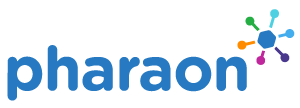Standardisation is an important tool for research and innovation projects like Pharaon to enhance the dissemination and exploitation of the project results. There are several ways to actively participate in standardisation.
 Standards developments
Standards developments
The development of standards takes place in technical standardisation committees within standardisation organisations such as the European Committee for Standardisation (CEN), the European Committee for Electrotechnical Standardization (CENELEC), the European Telecommunications Standards Institute (ETSI) on the European level, or the International Organization for Standardization (ISO), the International Electrotechnical Commission (IEC), and the International Telecommunication Union (ITU) on the international level. To contribute to the standards development usually a liaison with a technical committee is necessary. A liaison offers the opportunity to attend the meetings of the technical committee and its working groups and further contribute to the development of current standards by commenting on them and providing input to the documents.
Pharaon Liaisons
The Pharaon project initiated two liaisons with working groups in a technical standardisation committee to contribute to the development of two standards on the international level:
- ISO/TC 314/ WG4 – Wellbeing: ISO/DIS 25554 Ageing societies – Guidelines for promoting wellbeing in communities
- ISO/TC 314/ WG5 – Home Care: ISO/TR 25555:2024 Ageing societies – Accessibility and usability considerations for home healthcare products, related services and environments
CEN Workshop Agreements
Research and Innovation projects like Pharaon can also use the possibility to develop a standardisation document called CEN Workshop Agreement (CWA) within the project lifetime. A CWA can be the basis for a future standard and is therefore an important tool to bring project results into standardisation. Within the Pharaon project two CWAs were developed:
CWA 17933:2023 Digital health innovations – Good practice guide for obtaining consent for the use of personal health information for research and innovations (download)
Since digital health innovations are still under development or within the evaluation process, formal consent is usually needed for all stages of the development cycle. This CEN Workshop Agreement (CWA) defines a guideline for devising, obtaining and documenting the most suitable consent for the use of digital health innovations. The guideline describes which aspects should be considered when asking for consent. It specifies the appropriate consent for different situations and how it should be framed and transparently explained. This includes seeking consent for the future reuse of collected data for additional areas of research. The document establishes how to consider ethical and data protection requirements, the wording of consent forms and obtaining ethics committee approval where applicable. Further, this document focuses on how to handle the subjects access request or withdrawal during (formative and summative) technology evaluation trials. The aim is to support researchers to ensure that the appropriate informed consent form elements are considered. This is necessary since the presently adopted consent procedures usually concern only the specific use of data for identified and therefore foreseen purposes and are often challenged to obtain data reuse consent in a suitable way. This document does not cover the information security safeguards that should be adopted during the data processing.
CWA 18123:2024 Guidelines on Action Research for Large Scale Piloting (download)
The CEN Workshop Agreement defines Action Research and its role in large-scale pilots. It identifies the key stakeholders involved and outlines the necessary steps to conduct Action Research including for example setting up a project, training stakeholders and reflecting continuously. This CWA provides guidance on ethical consideration as well as addressing challenges and solutions like managing data, communication, and collaboration among stakeholders. It specifies ways to ensure the sustainability and scalability of the Action Research outcomes, as well as outlining the key competencies and skills required by the researchers and other stakeholders to conduct Action Research. The CWA establishes a framework for the identification of opportunities for future research and collaboration in this area. This CWA is mainly intended to be used by researchers and pilot managers but can also be useful to other stakeholders involved, like health and care providers, ethics boards, and technology providers.
Photo by Arno Senoner on Unsplash

